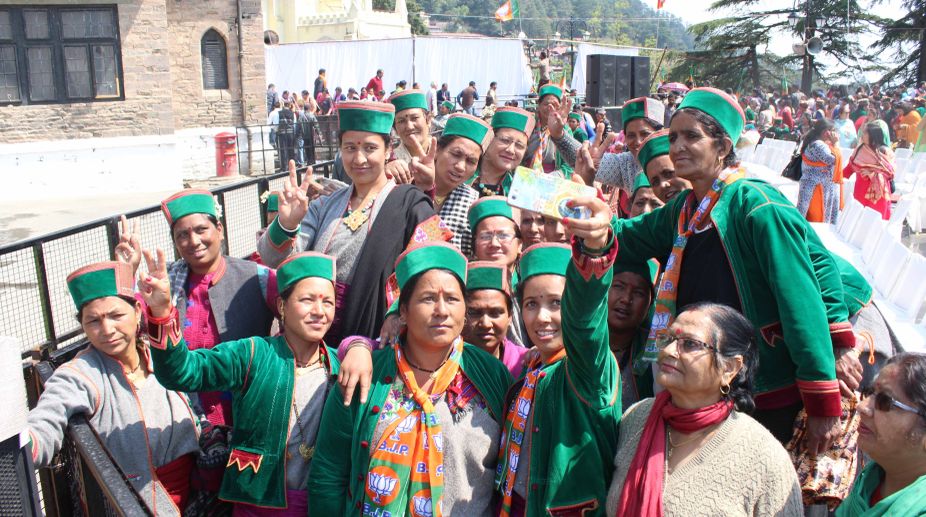Two tribal women die in Odisha after consuming mango kernel gruel
Two tribal women died and seven others fell sick after allegedly consuming mango kernel gruel in far-flung Mandipanka village under Daringbadi block of Odisha’s Kandhamal district.

(Photo: Lalit Kumar)
Hitherto unsuccessful in their social battle to get a customary law, that denies them right to inherit ancestral property, scrapped, the tribal women in Himachal Pradesh are up again to move the mountains.
Ready to put up legal fight, they are set to take this age-old issue to political arena ahead of assembly polls in the state.
Advertisement
“Yes we are all prepared to knock at the doors of the court as well as political quarters. Let it be debated,” Rattan Manjari, 64, Chairman of Mahila Kalyan Parishad, women’s NGO, in tribal district Kinnaur told The Statesman.
Advertisement
This ‘customary law’ followed in Kinnaur and some other tribal areas of HP, including Bharmour, is recorded in Wazib-ul-urz, a revenue document of settlement, pertaining to early 20th century. It says that a daughter cannot inherit the ancestral property. She has no right on father’s property and if her husband dies, the property goes to the son, or other males in the family, if she doesn’t have a son.
Manjari’s Parishad has been leading from the front to build consensus in tribal society against this customary law over the last one and a half decade, in view of the changing scenario, but to no avail.
The apprehensive elders, particularly men folk, have been opposing it, arguing that it would throw open precious tribal land to non-tribals – with many educated girls now marrying outside.
The tribal women were, however, all smiles, when the HP High Court in 2015 (while deciding an individual matter) held that daughters in tribal areas in state shall inherit property in accordance with Hindu Succession Act, 1956 and not as per customs and usages in order to prevent social injustice.
“By the time, the tribal women could see things moving on ground in their favour, the HC order into the individual matter was challenged in the Supreme Court and the entire order was stayed. It is pending there. So, we are filing a petition in the interest of all tribal women in the Supreme Court,” explained Manjari.
She said there were no objections to this system all through the decades as the tribal women were much respected and were fully secure in tribal set up. “But we have to have a way out now. There are many cases in the tribal area, where widows, divorced or deserted women or unmarried girls are being abandoned in old age. They need to have something in hand to live with dignity,” said Wangmo, 46, another activist.
She shared that the daughters are entitled to property as per system of ‘Taa Zindagi’, which they can use till they are alive, however, with no right to sell it or ‘will’ it.
“We are thus rendered unequal partners in society,” she rued.
Advertisement